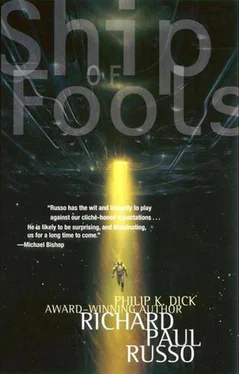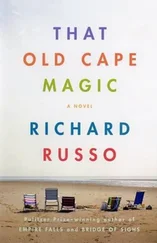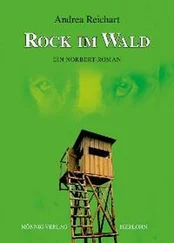“Don’t be afraid,” I said to him. “It’s all right, I’m not going to hurt you.”
But the boy kept struggling, and there was panic in his eyes. I wondered whether he didn’t understand me, or didn’t believe me.
I moved the light away from his face and walked back up the ramp, then worked my way toward him. I stopped when I was still several meters away, and aimed the light at the tangle of metal and wire that trapped his leg. I tried talking to him again.
“I won’t hurt you. I just want to help you get your leg free. Do you understand me?”
I moved the light up just enough so that its halo faintly illuminated his face. The panic had changed to defiance, but I was certain the fear was still there, camouflaged. He couldn’t have been more than thirteen or fourteen years old.
“My name’s Bartolomeo,” I said. “What’s yours?”
The boy finally spoke. “Let me see your face,” he demanded.
I swung the torch around and lit up my face from below.
“You look weird,” he said. “What’s that metal behind your neck?”
“Part of my exoskeleton.”
“What’s that?”
“A special support for my body, for my back and neck. My spine is… defective.” I tried again. “What’s your name?”
He hesitated, grimaced, then said, “Francis.”
“A saint’s name.” An automatic response, which I immediately regretted. The boy’s grimace twisted even more.
“Yeah, that’s what my mom told me. But I’m no saint, and I never will be.”
I turned the light back onto his trapped leg and started slowly forward. “Let me help you with that. You don’t want to get stuck in this place. No one would ever find you in here, and you’d starve to death.”
“ You found me,” Francis said. “And that big bald guy would come around pretty soon. I wouldn’t starve.”
“The big bald guy? You mean the bishop?”
“I don’t know.” I was right next to the boy now and I could see him shrug. “He comes here and other places, and he builds machines.”
Yes… he builds machines. I knelt beside the boy and aimed the light down into the chaotic webwork of metal and wire. His leg was buried in it to midthigh.
“Any idea what that machine does?” I asked the boy.
“Not really. Makes a weird sound and it gets real hot. But it doesn’t go anywhere. He likes these old machines, he likes to make them work.”
“You don’t know who the bishop is?”
“No.”
“Have you ever been to the cathedral?” I began carefully pulling and pushing at the wire around his thigh, creating a gap around his trouser leg.
“Is that the big church?”
“Yes.”
“I’ve never been there.” He paused, and I could almost sense him staring down at me. “Your arms aren’t real.”
“They’re real,” I replied. “They’re just not flesh and muscle and bone.”
“They’re not real,” he insisted.
I nodded, smiling to myself. “I guess you have a point.”
“And there’s something wrong with your foot.”
“Yes, club foot. I was born that way.”
“Your body’s pretty messed up.”
“Yes. But I get by just fine. No, don’t move your leg yet; hold still until I tell you to pull.” A twisted metal rod had become wedged against his knee. I couldn’t get a good grip on it, but I pulled at it anyway. My fingers slipped; I grabbed the rod again, grip better this time, and managed to pry it a few centimeters away from his leg.
“All right, try pulling your foot out now, slowly.”
The leg came up a bit, but his foot was caught almost immediately. It was stuck underneath a bundle of corroded wire.
“Can you straighten your ankle and twist your foot around to the right a little?”
There was some slight movement, but he stopped. “It hurts,” he said.
“All right, let me work on it some more.” I lay down on my stomach and stretched my arm far down, grabbed the bundled wire, and pulled. There is a lot of strength in my prosthetic fingers and arms; suddenly the wires broke apart and the boy’s foot came free. He pulled his leg and foot all the way out and stumbled backwards. He sat down on a metal bench that was attached to a dark blue apparatus littered with broken rubber belts.
“Are you all right?” I asked.
Francis nodded. “Foot still hurts is all.”
I sat beside him. “Do you think you can walk?”
He snorted. “I can walk.”
“What were you doing in here?”
The boy shrugged. “Looking around.”
“Do you come here often?”
“Sometimes. And other places like this. I like them.”
“How about school?”
Francis barked out a laugh. “What’s the point of that ?”
“Do your parents know you come here?”
“I don’t have any.”
I hesitated, feeling a sharp pain of recognition in my chest. “No parents at all?”
Francis didn’t answer right away. He looked down at his feet and rubbed his left ankle.
“No father,” he finally said. “My mother’s sick. They say she’s dying and they won’t let me see her. I haven’t seen her in a long time.”
“Who are you living with, then?”
“No one.”
“No one?”
“I can take care of myself.”
Yes, I thought, he probably could. But that wasn’t excuse enough for a thirteen-year-old boy to be living alone. “Don’t you have some other family? Sisters or brothers or aunts and uncles? Grandparents?”
“Yeah, but they don’t really want me.” He shrugged again. “I don’t want them, either, so it kind of works out.”
I didn’t believe him, but I didn’t say anything. Then I noticed he had no light.
“Don’t you have a hand torch, or some kind of light?” I asked.
“I dropped it back there, when I got stuck.”
I climbed across the mound of wire and searched for it with my own light. Far inside I saw what might be another hand torch; I lay down and tried to dig for it. But it was well beyond my reach; I realized there was no way I could ever get to it.
“I can’t reach it,” I said. “We’ll go out together.”
The boy didn’t respond. When I turned around to ask him where I should take him, he was gone. I swung the light around, among the hulks of old machines, between hanging cables and rusting metal rods, but saw no sign of him. He couldn’t have gone far.
“Francis.”
I listened carefully, but didn’t hear anything.
“Francis.” Louder this time. Again no response, no sound of movement.
I knew he was nearby, motionless and silent, cloaked in shadows. I was also fairly certain that if I searched long enough I would find him. But he didn’t want to be found, and I felt I should honor his wishes. There was something about the boy that reminded me of myself.
I stood watching and listening, still reluctant to leave him, but his wishes were clear.
“Goodbye, Francis,” I finally said. “I hope I’ll see you again.”
There was still no response, so I headed out on my own.
Ihave no parents. Certainly there was a woman who gave birth to me (the bishop and the Church forbade all use of artificial wombs), and certainly there was a man who fathered me, in either the “natural” way or as a donor—probably the former, although the use of artificial insemination would have been far easier to conceal than the use of an artificial womb. So I almost certainly had parents of some kind, but I have never known who or what they were.
I was born an orphan, presumably because of my deformities, and was raised communally by a small circle of families high within the social and command structures of the ship, which leads me to suspect that my parents were among that circle, or at least had some influence.
Читать дальше












